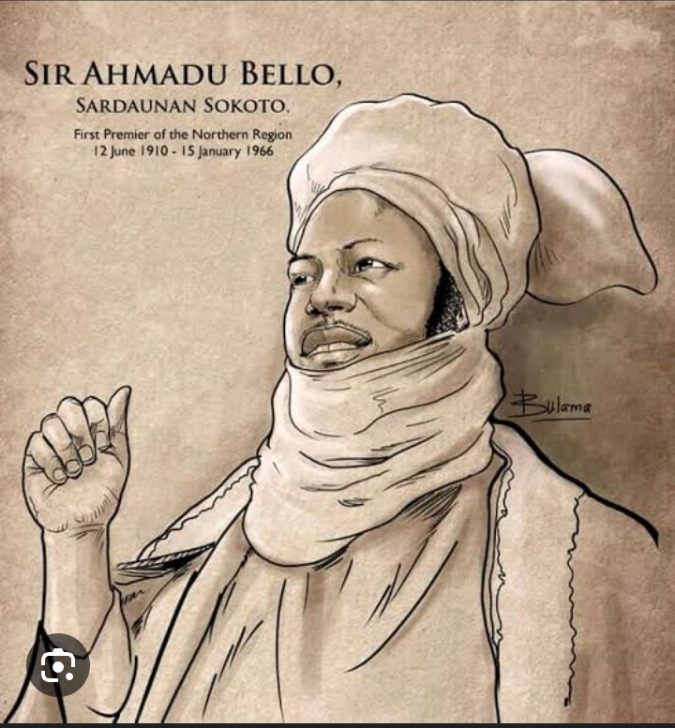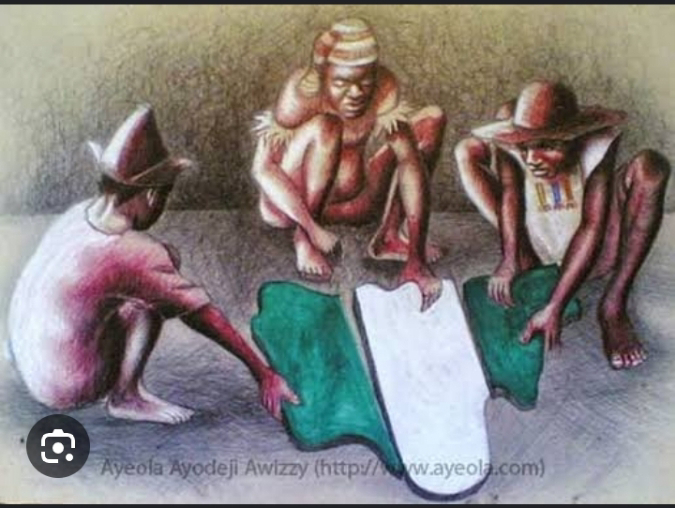Part 2: Nationalism In Nigeria, Nationalist Leaders And Their Contributions
Sir Ahmadu Bello
Northern People's Congress (NPC) was a political party in Nigeria. Formed in June 1949, the party held considerable influence in the Northern region from the 1950s until the military coup of 1966. It was formerly known as Jamiyaar Mutanem Arewa.
The leaders of the party were, Sir Ahmadu Bello the Sardauna of Sokoto who, was also the Premier of the Northern region and Sir Abubakar Tafawa Balewa who was the deputy leader of the party and also the first Nigerian Prime Minister whose office was created in 1957 and ruled throughout the First Republic (1963-1966).
Jamiyaar Mutanem Arewa was a cultural organisation that started with the purpose of enlightening people of Northern Nigeria. Due to the pressure from Southern based political parties the leaders saw the need to re-structure the organizationinto a proper political party, in 1951 it became the Northern People's Congress. The NPC was only open to the natives of Northern Nigeria and did not seek support from any other regions and the main ideology of the party was the development of Northern Nigeria both politically and economically. Sir Ahmadu Bello and the NPC were against the South agitation for independence as he believed that "independence must wait until a country has the resources to make success of independence". This view endeared him to the British colonial masters but drew the err of his fellow Nigerians who accused him of "lack of nationalism and political awareness".
The Northern People's Congress was organized of a small group Western-educated Northern Muslims who obtained the assent of Emirs to form a political party capable of counter-balancing the activities of the Southern based parties. The NPC represented a substantial form of reformism in the Muslim North that had been brainwashed by British indirect rule. The NPC platform emphasized the integrity of the North, it's traditions, religion and social order. Support for Nigerian as a whole came a clear second place, a lack of interest in extending beyond the Northern region corresponded to this strictly regional orientation. The support given by the Emirs to limited modernization was largely motivated by fear of the unsettling presence of Southerners in the North and by the equally unsettling example of improving conditions in the South.
Most internal problems within the North-peasant disaffection or rivalry among Muslim factions- were concealed and open opposition to the domination of Muslim aristocracy was not tolerated. Critics including representatives of the middle belt who plainly resented Muslim domination, were relegated to small parties and inconsequential separatist movements. In 1950 Aminu Kano, who had been one of the party members to study abroad and instrumental in founding the NPC broke away from the party to form the Northern Elements Progressive Union (NEPU), in protest against the NPC's limited objective and what he regarded as a vain hope that traditional rulers would wholeheartedly accept modernization. After the defection of Kano, the only disagreement was related to the aware ness of moderates such as Balewa, who believe that only by overcoming political and economic backwardness could the NPC protect the foundations of traditional Northern authority against the influence of the more advanced South.
In 1966 Sir Abubakar Tafawa Balewa and Sir Ahmadu Bello were both assassinated in the coup led by Major Chukwuma Kaduna Nzeogwu an Igbo Nigerian army officer. After their deaths, the NPC was relegated to a minor party.



Comments
Post a Comment